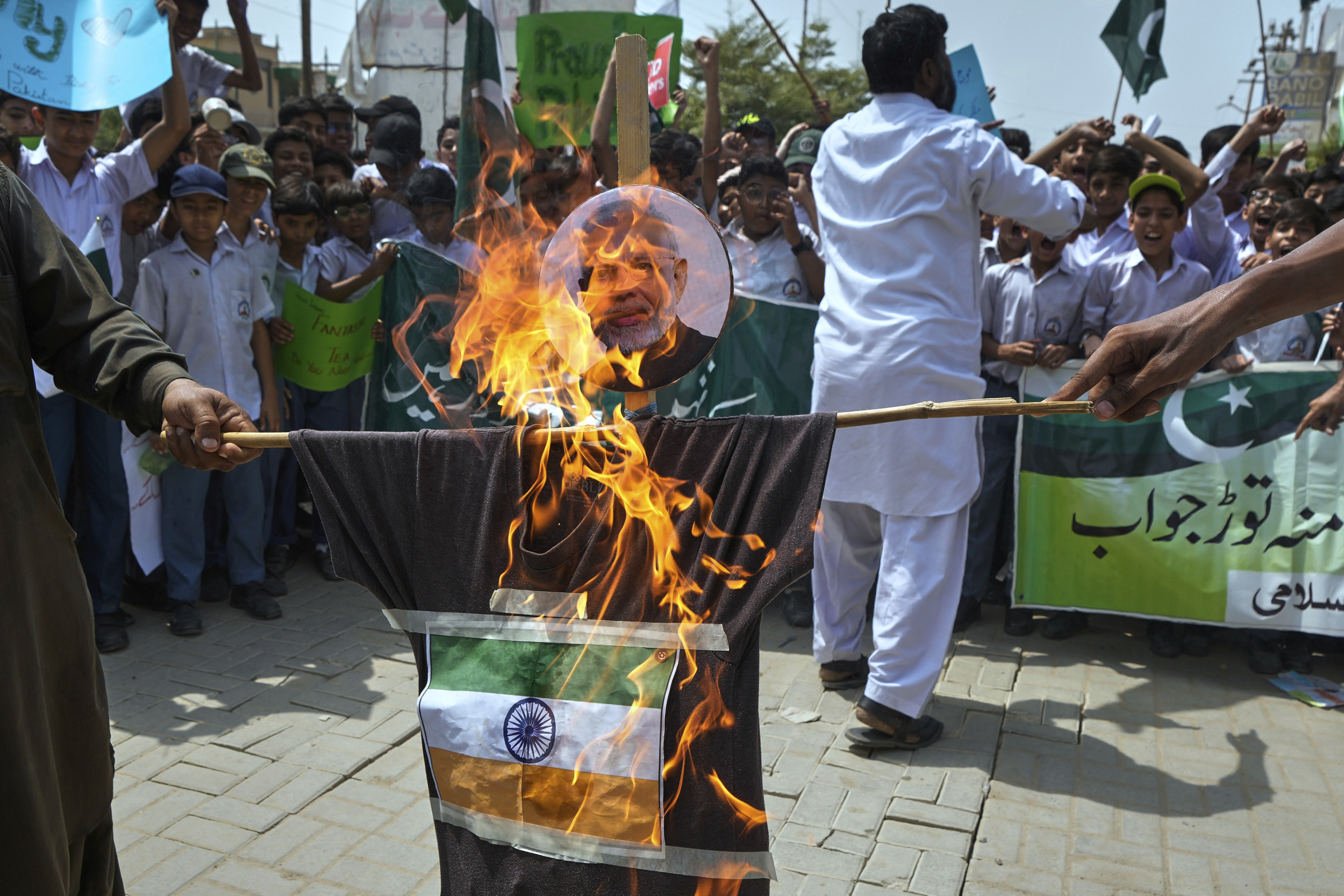Hoax Busted: Rumors of Indian Attack on Karachi Port Debunked Amidst Indo-Pak Tensions

Karachi, Pakistan – Amidst heightened tensions between India and Pakistan following recent clashes in Kashmir, a wave of misinformation regarding a purported Indian naval strike on Karachi Port has surfaced and rapidly spread online. However, these claims have been swiftly debunked by both official sources and independent fact-checkers, highlighting the dangers of spreading unverified information during times of conflict.
The rumors, which began circulating on social media platforms, alleged that Indian naval forces had launched a targeted attack on the strategically vital Karachi Port, causing significant damage and disruption. The speed with which these claims gained traction underscores the power of social media to amplify narratives, both accurate and false, especially in situations of geopolitical sensitivity.
Official Rebuttals and Fact-Checking Efforts
Both the Pakistani military and the Indian Ministry of External Affairs have vehemently denied the allegations. In a strongly worded statement, the Pakistani Inter-Services Public Relations (ISPR) dismissed the reports as “baseless and fabricated,” emphasizing that Karachi Port remains fully operational and secure. The Indian Ministry of External Affairs echoed this sentiment, stating that India has no intention of escalating the conflict through such actions.
Independent fact-checking organizations have also played a crucial role in debunking the misinformation. These organizations, utilizing open-source intelligence and verifying claims with official sources, have concluded that there is no credible evidence to support the allegations of an Indian attack. Analysis of satellite imagery and maritime tracking data further corroborates the official denials, showing no signs of damage or unusual activity at the port.
The Root of the Misinformation and its Consequences
The origins of this misinformation remain unclear, but experts suggest it may be linked to attempts to exacerbate tensions between the two countries or to sow discord within Pakistan. The rapid dissemination of these false claims highlights the vulnerability of social media platforms to manipulation and the need for greater media literacy and critical thinking skills among users.
The spread of such misinformation poses a serious threat, potentially escalating tensions and hindering diplomatic efforts to resolve the ongoing dispute in Kashmir. It underscores the importance of verifying information from credible sources before sharing it online and of being mindful of the potential consequences of spreading false narratives.
Kashmir Conflict and Current Tensions
The recent escalation of tensions between India and Pakistan is rooted in the long-standing dispute over the Kashmir region. Recent violence and border skirmishes have heightened concerns about a potential full-scale conflict. The misinformation surrounding the Karachi Port attack only serves to further complicate an already volatile situation.
Moving Forward: Combating Misinformation
Addressing the spread of misinformation requires a multi-faceted approach. This includes strengthening media literacy programs, promoting responsible journalism, and holding social media platforms accountable for the content shared on their platforms. Furthermore, fostering dialogue and understanding between India and Pakistan is crucial to de-escalating tensions and preventing further misinformation from fueling the conflict.
The debunking of the Karachi Port attack rumors serves as a timely reminder of the importance of critical thinking and fact-checking in the digital age, especially during times of geopolitical uncertainty. It is imperative that individuals and organizations alike prioritize accuracy and verification over the rapid dissemination of unconfirmed information.






